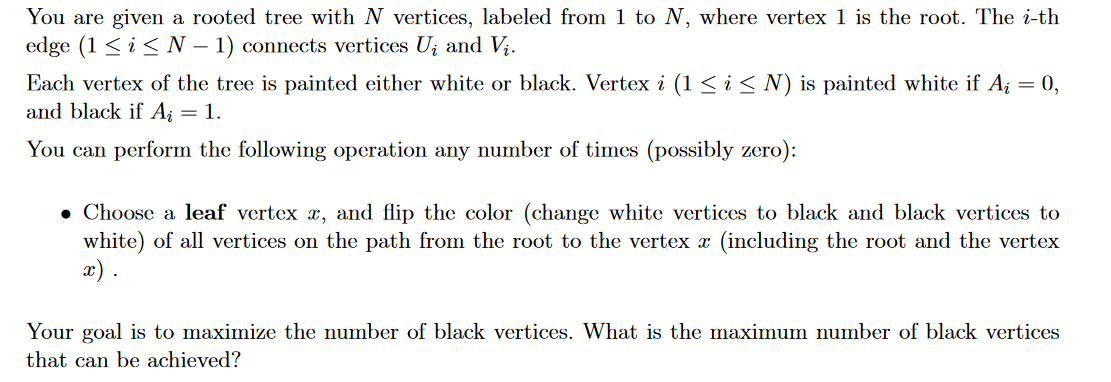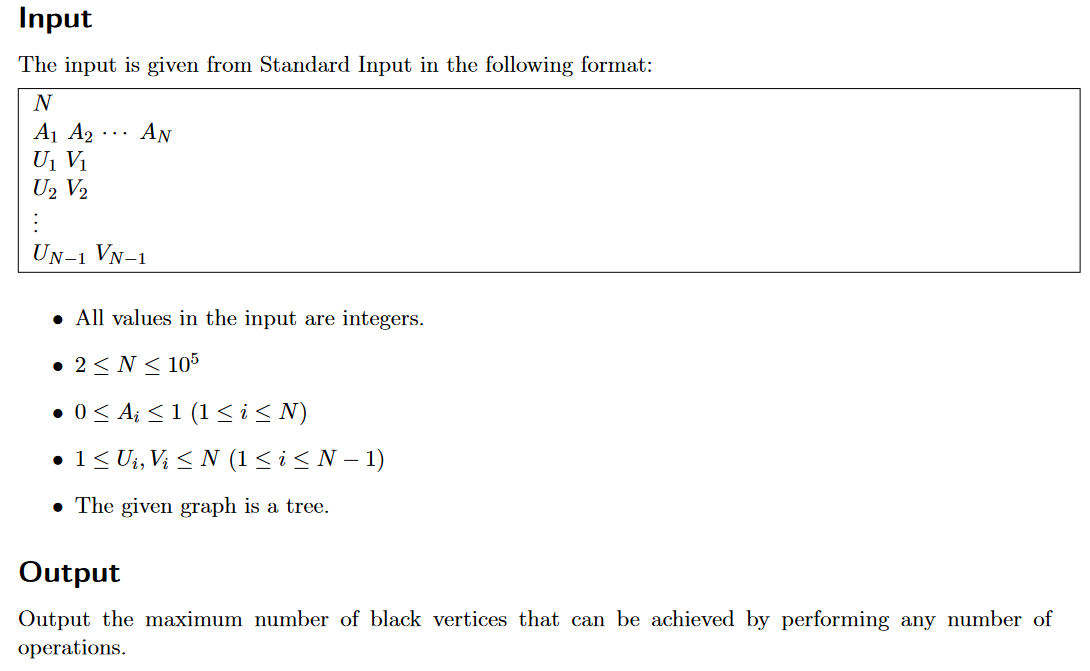#include<bits/stdc++.h>
using LL = long long;
constexpr int N = 2e5 + 7;
constexpr int M = 1e6 + 7;
constexpr int MOD = 1e9 + 7;
constexpr int mod = 998244353;
constexpr int inf = 0x3f3f3f3f;
constexpr LL INF = 0x3f3f3f3f3f3f3f3f;
std::vector<int>e[N];
int f[N][2];
int a[N], in[N];
int n;
struct CNM {
int ji, ou;
bool operator < (const CNM &a) const {
return (ji - ou) > (a.ji - a.ou);
}
};
void dfs(int u, int fa) {
if (u != 1 && in[u] == 1) {
f[u][0] = a[u];
f[u][1] = (a[u] ^ 1);
return;
}
std::vector<CNM> t;
bool ok = true;
for (int v : e[u]) {
if (v == fa) continue;
dfs(v, u);
if (f[v][0] != -1 && f[v][1] != -1)ok = true, t.push_back({f[v][1], f[v][0]});
}
if (!ok) return;
std::sort(t.begin(), t.end());
int res = 0;
for (auto [x, y] : t) res += y;
int cnt = 0;
int ji = 0, ou = res;
for (auto [x, y] : t) {
cnt ++;
res += x;
res -= y;
if (cnt & 1) ji = std::max(ji, res);
else ou = std::max(ou, res);
}
f[u][1] = (a[u] ^ 1) + ji;
f[u][0] = a[u] + ou;
}
signed main() {
std::ios::sync_with_stdio(false);
std::cin.tie(nullptr);
std::cin >> n;
for (int i = 1; i <= n; ++i) f[i][1] = -1, f[i][0] = -1;
for (int i = 1; i <= n; ++i) std::cin >> a[i];
for (int i = 1, u, v; i <= n - 1; ++i) {
std::cin >> u >> v;
e[u].push_back(v);
e[v].push_back(u);
in[u] ++;
in[v] ++;
}
dfs(1, 0);
std::cout << std::max(f[1][1], f[1][0]) << '\n';
return 0;
}

